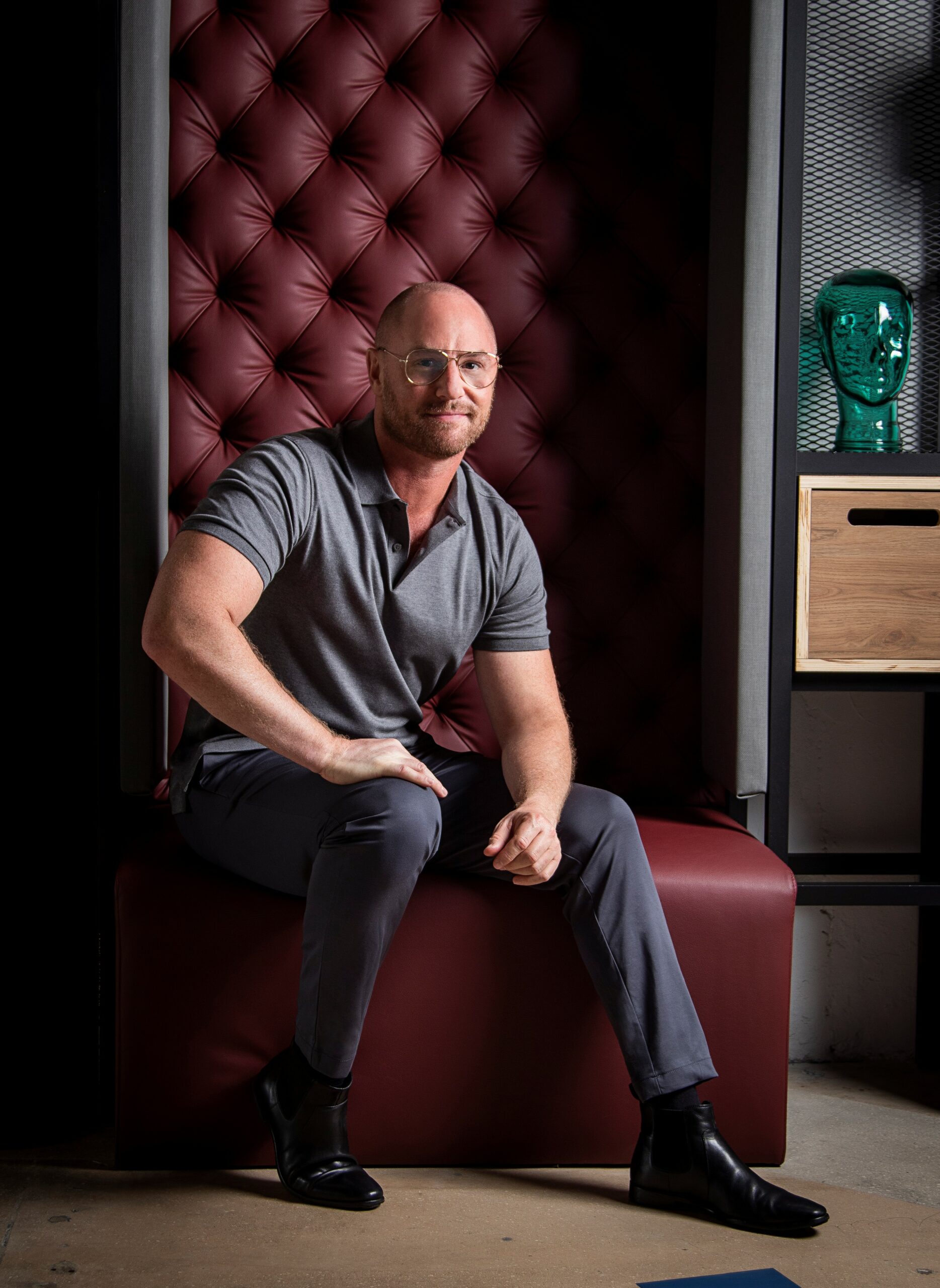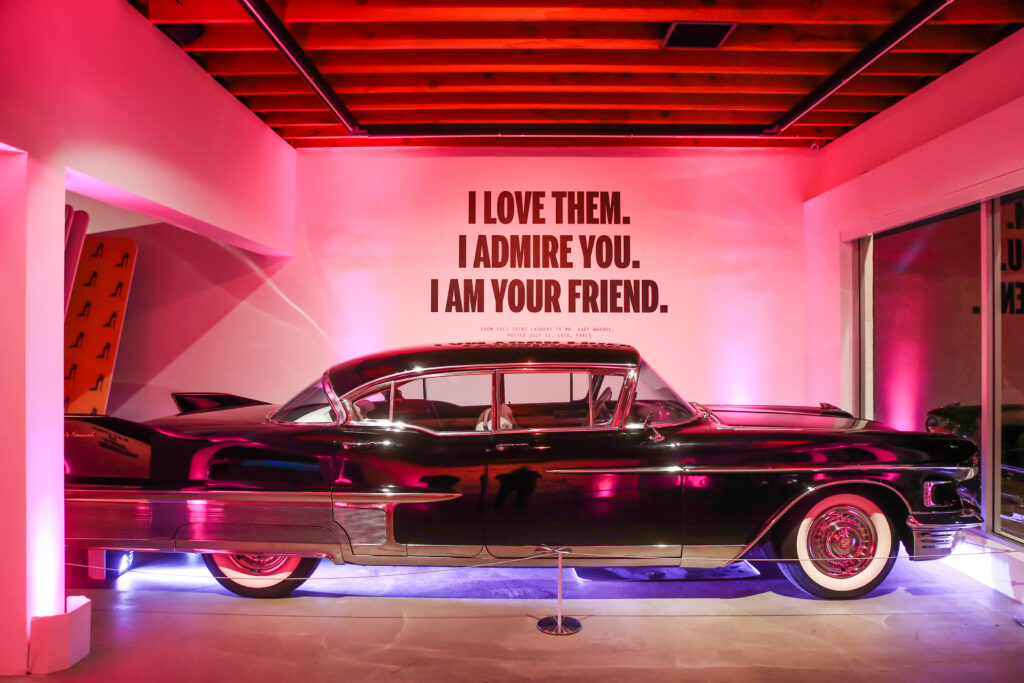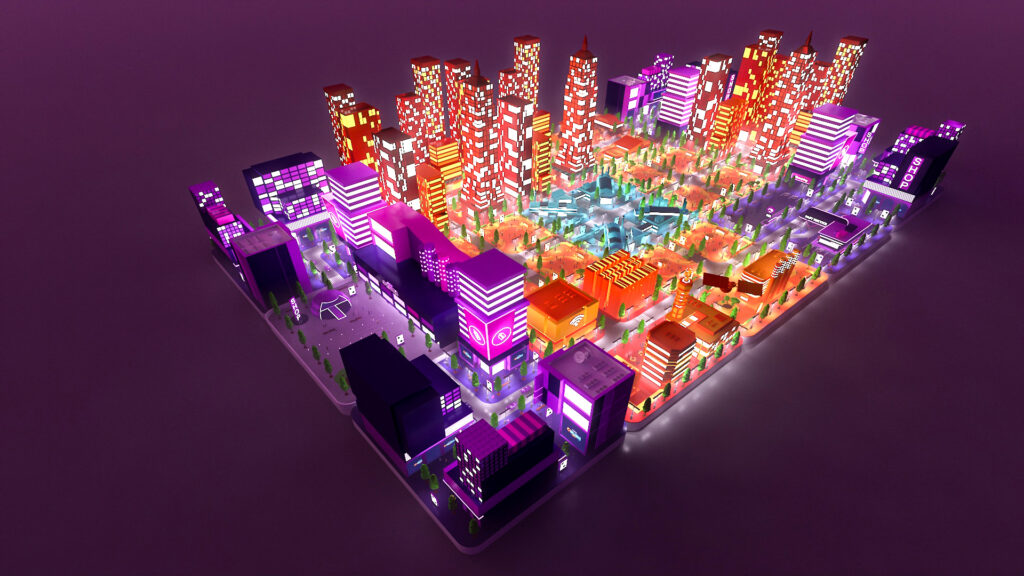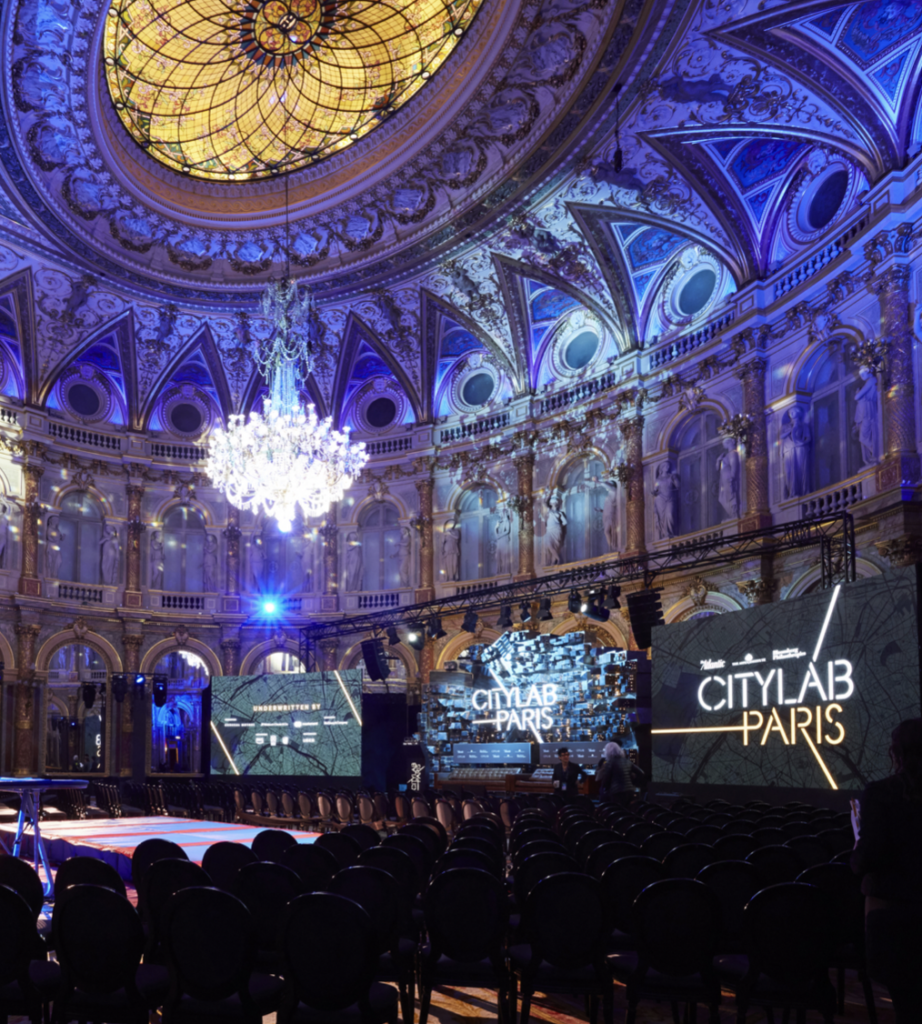It was only through adversity that Shai Tertner discovered his inner entrepreneur. Born and raised in Israel, his plan to become a doctor was derailed by his parents’ divorce and the financial difficulties that followed. At 23, he left Tel Aviv and landed in New York, founding the top-tier catering company Shiraz Events. His success translated to Miami, where Shiraz-catered gatherings became known for their innovative table settings, high-quality gastronomy and preternaturally attractive staffers.
But Tertner harbored bigger dreams, and gradually the company began to integrate experiential marketing projects. By 2018, Shiraz Events had morphed into Shiraz Creative (headquartered in New York, with offices in Los Angeles and London, as well as in Miami), specializing in live and digital activations for an enviable roster of global clients. As president and CEO, he runs the company along with two partners: COO Jason Harder and VP of global creative and digital strategy Tom Arendas.
For example, Shiraz Creative is the agency of record for Resy—the restaurant reservation app now owned by America Express—but this self-made man has played in the big leagues for years. Moreover, in an apt move during the COVID-19 era, Shiraz developed a hybrid broadcast/gaming platform that allowed its clients to remain connected and relevant to their consumers. And Tertner finally gave up his apartment in New York. (“Miami is home for me,” he says definitively.) He spoke to SFBW about Amazon, Warhol and his personal and professional evolution.
You’ve worked with some of the world’s most iconic global brands—Cadillac, Ralph Lauren, North Face, Belvedere, Visa. What is it like to service brands with such vast name recognition?
It’s definitely humbling and very satisfying. It’s exciting to be at the forefront of experiential marketing and working with very exciting people who are at the top of their games, with budgets that allow you to create things that push the envelope.
Do you ever have that “I’m in the room where it happens” feeling?
Yes, at times. We create relationships with our clients that have a level of intimacy, of friendship that feels very warm and supportive. After the first meeting, we’re at a place where we’re happy to see our friends and work with them.
What were the first big-name brands you worked with, and how did these deals come together?
Amazon and Microsoft. In the case of Amazon, we were introduced and recommended by their PR agency. This is going back more than 15 years ago, and they needed support for their press events, and we jumped in and designed an experience that was engaging and unique and shareable.
So even when you were known as a catering company, you were doing these experiential, creative productions. There wasn’t a clean break between catering company and creative agency, right? It was more gradual?
Yes. And that also presented a challenge in terms of our identity. That’s why we made that transition. Part of that decision was that we wanted to educate the people who know us, show them that we’re not a catering company anymore. We were already offering digital services for our clients.
During a time of transition in the nature of your business, Shiraz Creative also had to adjust to the realities of COVID. How did you meet this challenge?
In addition to the virtual and the technologies we developed, we also went back to in-real-life events. In the fall of 2020, covid compliance was really not identified, so in L.A. we worked on an outdoor, drive-through event, a 10-course tasting menu. It took a very brave client who was committed to moving forward, and because of that they got a lot of press and recognition—they were named one of the top 10 innovative companies in the United States by Fast Company. We’ve been pushing forward with other clients to create more in-real-life programming, figuring out what the formula is, because there is a formula, mostly involving being in open air.
Can you describe another one?
We created a restaurant on a barge in the Hudson River—it was for AmEx members. Platinum members were able to secure tables and every day a different star chef provided aperitivo and dinner. And aside from that, we’re doing multimarket tours with Resy, something called American Express Gold Card Pop-Up Diner. And we’re doing an event with Ralph Lauren in Paris, our third event with them. So, we’re pushing for in-real-life events to happen.
How did your deal with Cadillac come together?
It came together through Conde Nast and an event agency. We knew people on both sides. Conde Nast did an event featuring 25 innovators at what was then the new Cadillac House on Hudson Street in New York. They brought us in as an experiential event partner. That was one project.
And then came the Letters to Andy Warhol Project?
That was the mobile, multimarket project, a traveling project that eventually came to Miami. It was through Cadillac’s partnership with the Andy Warhol Museum in Pittsburgh and featured vintage midcentury Cadillacs. Pieces from the Andy Warhol Museum included drawings, silkscreens and photographs of Cadillacs by Warhol, plus correspondence between the artist and Mick Jagger, Yves Saint Laurent and the Museum of Modern Art. We created this experience that was a combination of virtual and augmented reality.
Did you have a special connection to these particular brands?
Cadillac is an iconic car and growing up in Israel, when my father and grandfather would talk about Cadillacs, there was always a romantic feeling to it. You would aspire to it. And then I moved to New York and was seeing all these Warhol works and how he affected culture—he was amazing. I was lucky enough to have some friends who had some of his pieces in their apartments. It was very special to be a part of this project with these two iconic brands, one a very special person who affected the way I live my life today, in a way.
You’ve spoken about your New York identity. What about your gay identity?
Growing up and being gay as a teenager and in my early 20s, I was allowed to be sensitive, to be attentive to design and detail, and so I did.
Does the LGBTQ+ community bring a special sensibility to corporate projects?
Definitely, companies are searching for that. What happened in the last five years is amazing and now with all these topics being on the table, they’re aiming to staff that way.
As you know, there’s a notable exodus of New Yorkers to Miami. The cliché is that New Yorkers tend to succeed here because they come with a drive and a skill set that is lacking locally. Did you experience this when you came here?
In early 2005, I came to Miami with Yaniv Cohen, who would become my business partner. We went to an event that friends had invited us to. We were told that we would be amazed, that this was the best event designer and caterer. We had such high expectations. We looked at each other and we just knew that we were going to open another office for Shiraz, in Miami, and we were going to bring the New York work ethic and sense of detail to Miami. The brands that we work with are brands that trusted us—they knew that they were working with a New York-style company, and that was one of the secrets to our success here.
Shai, you’ve always had great drive, great hustle. Can you speak to that?
I knew that one day I would do something special, something great. When I moved to New York, I was very focused, very determined, and I allowed the path to unfold, without really knowing where it was taking me, where it was going. I smiled, I remembered people, I remembered things about them, so I was able to create connections. It’s like building a house, always looking forward.

















